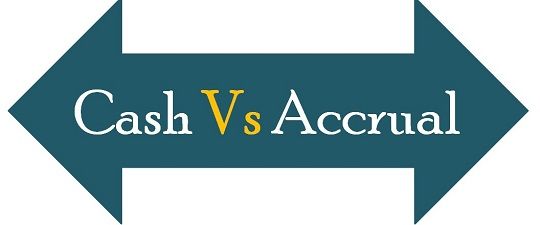
If you are a business owner, you will need to use some form of accounting to track your income and expenses. There are two main types of accounting: accrual-based accounting and cash-based accounting. In this article, we will take a look at the pros and cons of each type of accounting to help you decide which one is right for your business.
Accrual-based accounting is the more complex of the two types of accounting. It involves recording revenue and expenses when they are incurred, regardless of when the money is actually received or paid. This type of accounting provides a more accurate picture of your business’s financial health.
Cash-based accounting is simpler because it only records revenue and expenses when the money is received or paid. This type of accounting is best for businesses with simple financial structures.
Defining Accrual-Based Accounting
Accrual-based accounting is the more complex of the two types of accounting. It involves recording revenue and expenses when they are incurred, regardless of when the money is actually received or paid. This type of accounting provides a more accurate picture of your business’s financial health. For example, let’s say that you own a business that provides consulting services. You provide a service to a client in January and send them an invoice for $1,000. The client doesn’t pay the invoice until March.
Under accrual-based accounting, you would record the $1,000 of revenue in January when the service was provided. Similarly, let’s say that you have to pay rent for your office space every month. The rent is $1,200 per month. Under accrual-based accounting, you would record the $1,200 expense in the month that you incur it, even if you don’t actually pay the rent until the following month.
Defining Cash-Based Accounting
Cash-based accounting is simpler because it only records revenue and expenses when the money is actually received or paid. This type of accounting is best for businesses with simple financial structures. Using the same example from above, under cash-based accounting you would only record the $1,000 of revenue in March when the client actually paid the invoice. Similarly, you would only record the $1,200 expense in the month that you actually paid the rent.
The Pros of Accrual-Based Accounting
There are several advantages to using accrual-based accounting. First, it provides a more accurate picture of your business’s financial health. This is because it records all revenue and expenses when they are incurred, regardless of when the money is actually received or paid.
Second, accrual-based accounting is more efficient. This is because it eliminates the need to track receivables and payables. With accrual-based accounting, you only need to track revenue and expenses.
Third, accrual-based accounting is more flexible. This is because it allows you to offer credit to customers and to take advantage of early payment discounts from suppliers.
The Cons of Accrual-Based Accounting
There are also some disadvantages to using accrual-based accounting. First, it is more complex than cash-based accounting. This is because you have to track receivables and payables.
Second, accrual-based accounting can lead to cash flow problems. This is because you may have to pay expenses before you receive revenue. For example, if you have to pay rent in January but don’t receive payment for your services until March, you may have to use cash from your savings to pay the rent.
The Pros of Cash-Based Accounting
The main advantage of cash-based accounting is that it is simpler than accrual-based accounting. This is because you only have to track revenue and expenses when the money is actually received or paid. Cash-based accounting is also more likely to result in positive cash flow. This is because you only have to pay expenses after you have received revenue. For example, if you receive payment for your services in March but don’t have to pay rent until April, you will have positive cash flow in March.
The Cons of Cash-Based Accounting
There are also some disadvantages to using cash-based accounting. First, it can provide a false sense of security. This is because you may think you have more cash than you actually do. For example, if you think you have $10,000 in the bank but you have $5,000 in outstanding invoices, you may make poor financial decisions. Second, cash-based accounting can lead to financial problems. This is because you may have to pay expenses before you have received revenue.
So, Which One Should My Business Use?
The type of accounting you use for your business depends on several factors. First, you need to consider the complexity of your business. If you have a simple business with few transactions, cash-based accounting may be sufficient. However, if you have a complex business with many transactions, accrual-based accounting may be necessary.
Second, you need to consider your cash flow. If you are concerned about having enough cash to pay your expenses, you may want to use accrual-based accounting. This is because accrual-based accounting can help you better manage your receivables and payables.
Third, you need to consider your credit needs. If you need to offer credit to customers or take advantage of early payment discounts from suppliers, accrual-based accounting may be necessary. Ultimately, the decision of which type of accounting to use depends on your specific needs. You should consult with an accountant or financial advisor to determine which type of accounting is right for your business. Park City Bookkeepers can you decide which is best for your business.
